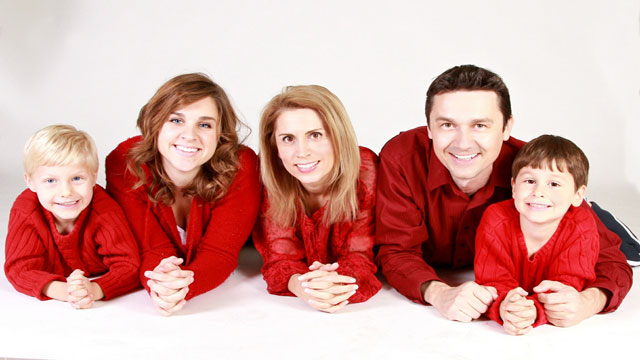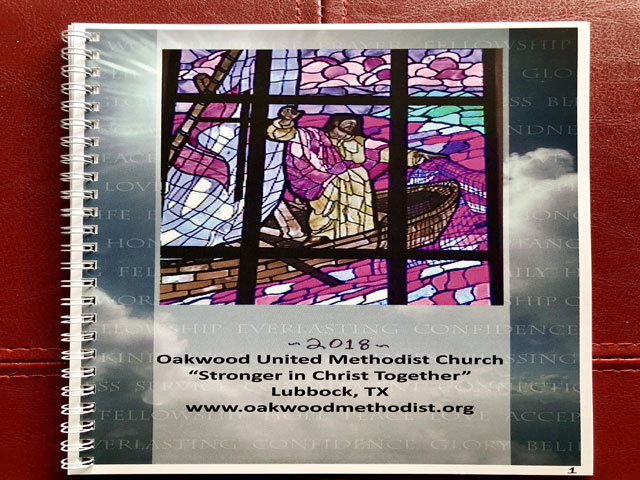Read the article below about healthy and dysfunctional families. Then, imagine how the examples can apply to your Church family. There are some parallels to be seen. You see, your Church family really is a “family”. As Pastor Rob would say: “there’s a word for somebody today”. Also, remember that your Church family can and will help heal your home family, and vice versa. If you think about it, how can you have one without the other, anyway?
The Differences between Healthy Families and Dysfunctional Families
by stephanie reck
God created families to love, nurture, protect and support each other. Healthy families are essential for belonging and acceptance. However, not all families are healthy and some families would be considered dysfunctional.
There are certain characteristics that healthy and dysfunctional families possess.
Traits of a healthy family:
– Enjoy spending time together. Spending time together is not dreaded, but in fact is pleasurable.
– Communication is open, honest and frequent, you never have to guess why someone is upset or does not like something. It is difficult to have healthy relationships with others when people don’t say what they really mean. Being upfront and honest is a main ingredient for a healthy family relationship.
– Love is not withdrawn if you think or behave differently.
– They respect each other. No one forces the other to conform or to be like someone else. Healthy families also respect each other’s time and space.
– Everyone knows their given roles. Moms are moms, not the daughter playing the role of “mom.”
– There are clear boundaries. Healthy families don’t assume your “on-board,” without asking you first and then not respecting your decision.
– Trust permeates through healthy families. Promises are kept. Reliability and dependability are paramount in healthy families.
– They don’t get easily offended, mainly because there is frequent, open and honest communication where grace abounds. No question is inappropriate and no opinion is disrespected.
– They support each other through the triumphs and trials of life.
– United through their relationship with God. Healthy families pray for one another, encourage each other with scriptures, and encourage each other in their walk with God.
– Encourage, edify and build-up each other.
To sum up the traits of a healthy family you should have: pleasure in being together, open and honest communication, clear boundaries, mutual respect, trust, support, encouragement, and unity through relationship with God.
Traits of a dysfunctional family:
– Boundaries are unclear. No one knows their assigned role, son taking on the role of “mom” because mom is irresponsible.
– False responsibility and false guilt abounds.
– Exert control and manipulative tactics to get their way. Control can be overt such as laying guilt trips if you don’t do what they want or completely ignoring you by not communicating with you.
– Emotionally and mental instability. Little predictability, you just never know what you’re going to get.
– Time is spent together out of duty and obligation not love.
– Live in denial by pretending things are okay when they are not.
– Addictions of all types.
– Communication is infrequent and dishonest at times. You are not sure how the other person really feels because of the lack of open and honest communication.
– Dysfunctional families are either enmeshed (overly connected) or unattached. Enmeshed families do not respect the right of the individual member to have their own needs, and there is pressure to conform.
In dysfunctional families, there can be some who would be considered toxic. A toxic relationship is one that takes more than it gives, and when it does give, there is always an agenda.
Traits of toxic people:
– Use others for their benefit; regardless of the impact on others.
– Lie easily and frequently to get what they want.
– Blame others and rarely take responsibly for their actions.
– Drain your time, energy and resources-you can never do enough to help them.
– Pit family members against each other.
– Only interested in being a part of something if there is a benefit to them.
– Can be needy and manipulative.
– Don’t seem to learn from their mistakes.
– Drama, chaos and confusion follow them.
Being part of a healthy family is one of the greatest blessings that we can have, but belonging to a dysfunctional family can be damaging to your mind, body, and spirit.
You may need to implement and evaluate some needed changes if you are part of a dysfunctional family. Chances are you have been dealing with your dysfunctional family most of your life unless you married into one, and some changes are needed so you can regain your sanity. Basically, you’re taking back your life.
Here are a few tips you can begin to implement:
1. Detach emotionally in love without any anger, bitterness or unforgiveness. Truly want and speak the best for them, but guard your heart from being pulled and swayed by their dysfunction that traps you like bait.
2. Detach physically. Take a break from any phone call, texts, or visits. If you find you’re losing your peace and getting angry when you engage with them, it is time to back-off.
3. Get real with yourself. Are your family relationships harming you or benefiting you?
4. When and if you do re-engage with your family, let it be on your terms with boundaries.
5. Take care of you and the healthy relationships that are in your life.
Stephanie R. Reck, LMSW, LBT, BCCC
Founder of Hope Ministry
www.stephaniereck.com
Hopeandencouragement4women@gmail.com
Hope Ministry, @2018
Author of, “Disciplining Your Mind 30 Days to a Better You!”
by stephanie reck
Article Source: http://www.faithwriters.com – CHRISTIAN WRITERS
– Did you know that Oakwood has the longest continually operating preschool in Lubbock, Texas? http://oakwoodmethodist.org/preschool/
– Oakwood United Methodist Preschool, Lubbock Texas. (2215 58th Street, Lubbock, Texas 79412 [Google Maps link])
– Follow the Preschool on Instagram
– Sunday Church Service @ 10:30am.
– Our Church Sunday Schools are now opened back up (come study @ 9:15am).
– We re-opened our Thursday Morning Prayer Group (TMPG) Hour of Power @ 6:30am.
– Live (Sunday Church Service) on Facebook Live






